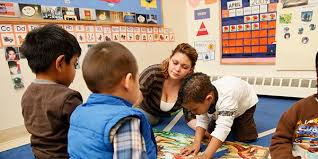1. Introduction to Career Counselling
Career counselling is a tailored approach to helping individuals understand their strengths, interests, and aspirations, enabling them to make informed decisions about their careers. For children, career counselling offers an opportunity to align their natural talents and passions with potential career paths. In today’s dynamic job market, where new professions are constantly emerging, guiding children early can provide clarity and build confidence in their decision-making.
The process often involves assessments, discussions, and goal-setting exercises that help children and their families visualize their futures. More than just choosing a profession, career counselling for children is about instilling a sense of purpose and helping them explore possibilities without pressure.

2 Importance of Early Career Counselling
Introducing career counselling during formative years allows children to explore their potential before making pivotal academic or extracurricular decisions. Early counselling helps them discover strengths they might not recognize and gain insights into professions they hadn’t considered.
The teenage years are particularly critical as they coincide with academic transitions that significantly impact future career opportunities. Without guidance, many students choose paths influenced by external pressures rather than personal interests. Career counselling counteracts this by empowering children to think independently and strategically about their future.
Moreover, early intervention fosters confidence, improves academic focus, and reduces stress associated with uncertainty about the future. Schools and communities increasingly recognize the value of career counselling, integrating it into education systems to prepare students for an ever-evolving world.
3. Identifying Your Child’s Strengths and Interests
Understanding a child’s unique skills and preferences is the cornerstone of effective career counselling. This involves:
- Observation: Noting activities that naturally captivate their attention.
- Communication: Engaging in open discussions about their dreams and aspirations.
- Assessment Tools: Using aptitude tests, personality evaluations, and interest inventories to gain deeper insights.
Encouraging exploration is vital. Whether it’s through internships, volunteering, or extracurricular activities, children should have opportunities to experience diverse fields before making decisions. Parents and counsellors should adopt a supportive approach, avoiding judgment or comparison.
A focus on strengths, rather than weaknesses, nurtures self-esteem and helps children see the value in their capabilities. For example, a child who enjoys storytelling might excel in journalism, content creation, or even law. The key is to connect their passions to potential career opportunities.

4. The Role of Parents in Career Guidance
Parents play a pivotal role in their child’s career journey. They are often the first to recognize their child’s talents and can provide the emotional support needed to explore careers confidently. However, it is essential for parents to balance guidance with autonomy, ensuring they don’t impose their preferences.
Key parental roles include:
- Encouraging Curiosity: Motivate children to ask questions and learn about various professions.
- Facilitating Opportunities: Help them find mentors, workshops, or online resources to expand their knowledge.
- Staying Informed: Parents should educate themselves about modern career trends to provide relevant advice.
Parents should also create an environment that fosters open communication, so their child feels comfortable expressing concerns or doubts about their career path.

5. Professional Career Counselling Services
Professional career counsellors bring expertise and objectivity to the process. They use scientifically-backed tools and methodologies to guide children in exploring career options aligned with their interests and aptitudes.
Career counselling services typically offer:
- Comprehensive Assessments: Tools to evaluate strengths, weaknesses, and personality traits.
- Career Path Mapping: Insights into required qualifications, skills, and growth opportunities in chosen fields.
- Motivational Support: Encouraging children to remain focused on long-term goals despite challenges.
By collaborating with educators and families, professional counsellors create a holistic support system that nurtures the child’s development.
[Insert Image Here]
6. Overcoming Challenges in Career Counselling
Career counselling isn’t without its challenges. Resistance from children, lack of resources, and societal pressures can complicate the process. Addressing these barriers requires patience and adaptability.
Parents and counsellors should:
- Use relatable examples to demonstrate the benefits of career counselling.
- Actively involve children in decision-making, making it a collaborative effort.
- Provide consistent reassurance to alleviate fears of failure or judgment.
It’s also vital to challenge stereotypes around certain professions, promoting respect for diverse career choices.

7.Overcoming Challenges in Career Counselling
Real-life success stories highlight the transformative power of career counselling. For instance, a young student passionate about video games might discover an interest in game design through counselling sessions. Another child struggling academically may find their calling in creative arts, thanks to guidance that identified their hidden talents.
These examples underscore the importance of tailoring career counselling to individual needs, encouraging children to pursue paths that resonate with their unique strengths and aspirations.



You must be logged in to post a comment.